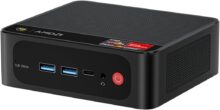Progress Report & Merch!
Anyone wanting a Giocoso-themed coffeee/tea cup is now welcome to get one. Every mug purchase made by clicking that link yields me a £1 commission, which helps pay this web server's electricity bills! It's just a bit of fun, really; but if enough people asked, I can get organised to do t-shirts, too. The mug is a typical size, fits in the hand nicely and has the new Giocoso logo all over it! It's been tested in the microwave and dishwasher, so it's pretty robust. Make of it what you will, anyway!
Perhaps more importantly, Giocoso 3.30 itself moves ever-closer to release. In particular: [...]









